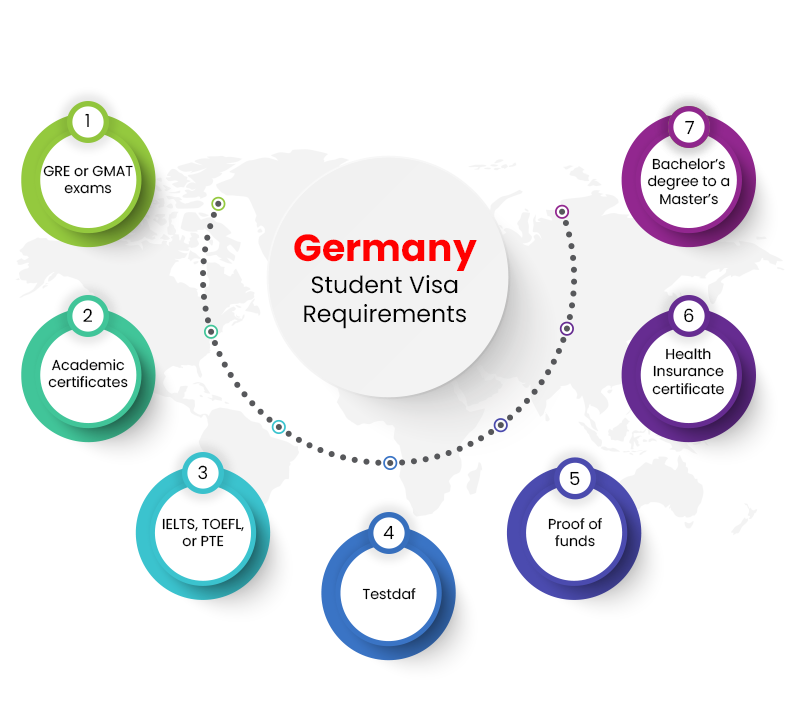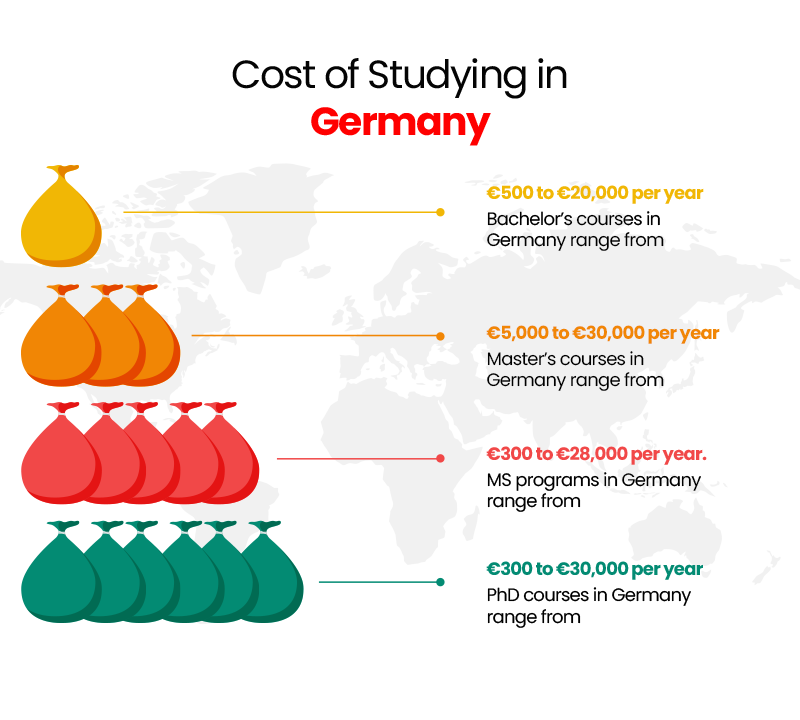Germany is innovative, cultural, and known for its academic excellence. It has become an illuminant for international students who are looking for the best educational system with high-quality standards.
The country offers diverse courses with its renowned top-ranked universities, and post-work opportunities. Studying in Germany can be a life-changing experience for your personal growth and academic development.
According to the annual Study Abroad Trends Report 3.0, Germany has become the most desired destination for international students to study in 2024.
Germany is gaining 32.6% of the international student population from India, making Germany a popular study destination for Indian students.
The country is also famous for German’s devotion to their country and its welcoming culture. They called their country “the country of poets and thinkers.”
Germany has around 400 institutions of higher education and about 1000 English-taught study programs. Some German universities score high in international rankings.
There are many benefits to studying in Germany. With a study visa, you can access top-ranked universities with relatively low fees, numerous scholarship options, a high standard of living with low cost, post-work opportunities, and more.
Student Visa in Germany:
Obtaining a German study visa and education in Germany is easy to access in comparison to other countries.
The German study visa is issued for 3 to 6 months. After immigrating, you can apply for a residence permit which can be extended as per the requirements.
Germany offers three types of study visas:
-
German Student Visa: This visa is for international students who want to be admitted to a full-time course at a German university.
-
German Student Application Visa: This visa is for international students who have applied to study at a university or enrolled in a full-time course or program. However, you cannot study with this visa in Germany.
-
German Language Course Visa: Candidates who wish to learn or study the German language can get access to this visa category.
However, the cost of a student visa may range between €75 to €120 for adults, and for minors, it is €37.5 to €50.
Germany Student Visa Requirements:

International students are required to fulfill certain requirements to obtain a study visa for Germany. Here are some of the major requirements that need to be met:
- A student is required to show their academic certificates.
- A student must clear the GRE or GMAT exams.
- If a student is a non-native English speaker, they are required to pass any English language proficiency tests like IELTS, TOEFL, or PTE.
- If you are a German student, you are required to clear a German language test, i.e., Testdaf.
- A student is required to show proof of funds and ensure that they are capable of covering the tuition fees and living expenses in Germany.
- A Health Insurance certificate is necessary to demonstrate your well-being during your stay in Germany.
- The educational requirements may differ from a Bachelor’s degree to a Master’s. It is recommended to take experts' advice and consult it with an immigration consultant.
Top Universities in Germany:
Here are some of the top-ranked and well-reputed universities in Germany where you can study and enhance your personality and professional growth:
-
Technical University of Munich
-
Ludwig Maximilian University of Munich
-
Heidelberg University
-
Free University of Berlin
-
RWTH Aachen University
-
KIT, Karlsruhe Institute for Technology
-
Humboldt University of Berlin
-
Technical University of Berlin
-
Albert-Ludwigs-University of Freiburg
-
University of Hamburg
Top Courses in Germany:
Germany offers a wide range of courses for international students of different interests and majors. If you have a science, technology, or humanities major, the country provides many courses that you can choose from.
Here are the top courses available in Germany:
- Mechanical Engineering: This course offers knowledge about engineering and industry collaborations.
- Business and Economics: This course teaches you about commerce, global economics, and management.
- Computer Science: To study in this course, you can gain an insight into technologies and innovation in tech industries.
- Medicine and Healthcare: This course offers a wide range of research opportunities in the medical and healthcare sectors.
- Renewable Energy: By studying this course, you will be able to contribute to one of the world’s leading green energy hubs.
Germany offers many scholarship benefits to study in the country with affordable and budget-friendly costs. Some of the scholarships available for international students are:
- The Deutschlandstipendium at German Universities
- DAAD WISE (Working Internships in Science and Engineering) Scholarships
- DAAD Scholarships in Germany for Development-Related Postgraduate Courses
- DAAD Helmut-Schmidt Masters Scholarships for
Intakes or Admissions in the Universities:
In Germany, there are two intakes: the Summer semester, which is held between March and August, and the Winter semester, which is held from October to February or October to March.
The intake for Bachelor's courses is in October for major courses and in March for minor courses.
The intake for Master’s courses, including MS and MBA, is in October for major courses and in March for minor courses.
Cost of Studying in Germany:
The cost of studying in Germany varies according to the courses and the level of degree.
However, here are the average cost of studying in Germany as per programs:
- Bachelor’s courses in Germany range from €500 to €20,000 per year.
- Master’s courses in Germany range from €5,000 to €30,000 per year.
- MS programs in Germany range from €300 to €28,000 per year.
- PhD courses in Germany range from €300 to €30,000 per year.
Work Opportunities for Students:
The Emergence of better jobs and post-work opportunities made students more likely to study in Germany. This offers them a chance to enhance their perception of the job market and personality and professional development.
International students have the opportunity to work along with their studies. There are many jobs and internships available for students to enhance their career beginning and a chance to become self-employed.
The country offers many work opportunities to international students who graduate.
There are many sectors in which job opportunities are available, like IT, coal, machine tools, textiles, engineering, electronics, chemicals, machinery, shipbuilding, vehicles, foods, and beverages.
Sectors like the automotive industry, high-tech manufacturing, telecommunications, banking, and tourism have shown recent growth and unlocked the job opportunities for international students after study.
Factors you need to know about Germany:
- Germany offers higher prospects of education with 420 Higher Education Institutions.
- Around 2.9 million young students are studying in Germany for a university degree.
- Germany is one of the countries to spend 107 billion euros on research and development.
- International Researchers in Germany currently account for around 12% of academic organizations.
- Around 86 Max Planck Institutes are dedicated primarily to basic research.
- Around 76 Fraunhofer Institutes with a focus on applied research.
- The Leibniz Association has 96 research institutions, and the focus ranges from Engineering to Humanities.
- In the Helmholtz Association, there are 19 research centers, and the fields of research are energy, earth/environment, health, key technologies, materials, transport, and space.
- Obtaining a study visa for Germany can be a tangled process. Hence, it is crucial to seek professional advice to avoid rejection of your visa application.
Stark Visas will help you achieve your dream of studying abroad. The team of expert consultants will guide you throughout the immigration process and to the top-ranked courses and universities in Germany.
To make your documentation process hassle-free. Contact us today!



